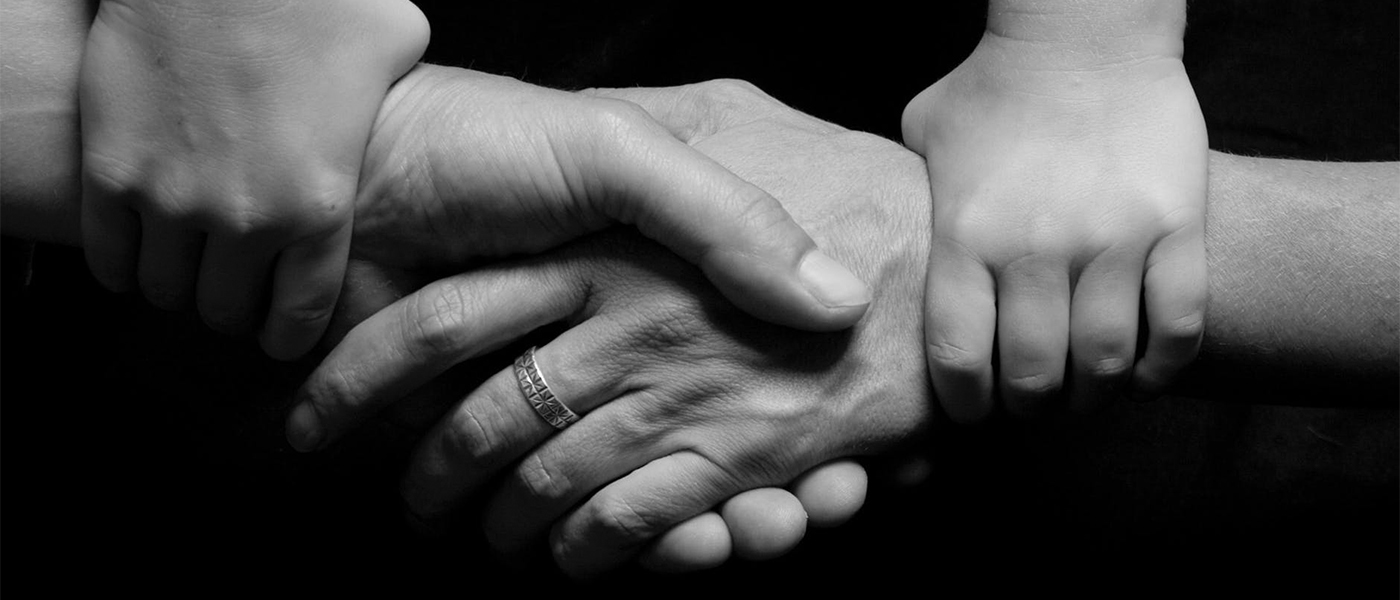

What Does Islam Say about Maintaining Family Ties?: Part 2
Silatur-Rahim or preserving family ties is not limited to visiting relatives, but also includes trying to satisfy their needs and strengthening emotional bonds with them. This depends of course on the situation of each member of the family; one might require money while the other has emotional needs [1].
Some of the examples of Silatur-Rahim are: visiting relatives; greeting and honoring them; inviting them even to a cup of coffee or tea; giving them good advice in case of a problem; not harming them by talking behind their back, insulting or accusing them, or by interfering in their personal affairs; being kind and caring about them; visiting them when they are sick; giving them gifts in different occasions; fulfilling their needs before others do, and participating in their funerals [1]. Imam Sadiq has(AS) said: “… The best family tie is the one in which the relatives are not harmed” [2].
Maintaining family ties: Benefits
Upholding kinship with relatives has various advantages in this world and the hereafter:
Having the social and emotional support of family: In Surah Hud, where people threaten Prophet Shu’ayb (PBUH), they tell him if his tribe had not supported him, they would have stoned him (11:91).
Imam Ali (AS) said: “Upholding family ties brings affection and humiliates enemies” [3].
Having an immediate reward: Imam Baqir (AS) said: “The reward of Silatur Rahim is given more quickly than any good deed” [4].
Increase in wealth: Prophet Muhammad (PBUH&HP) said: “Whoever keeps family kinship, God will love him and increase his wealth” [5].
Having some of the sins vanished: Imam Ali (AS) said: “Eliminate your sins by a voluntary charity and keeping family ties” [6].
Having an easy death and a long life: When Prophet Moses (PBUH) asked God about the reward of upholding family ties, the answer was: “(Whoever does so,) I will postpone his death, I will make his death easy, and the heaven angles will call him to enter heaven from every door he wishes” [7].
Prophet Muhammad (PBUH) said: “Whoever keeps family kinship …God will make his life longer and let him enter heaven” [6]. Imam Baqir (AS) said: “Keeping family ties purifies one’s deeds, increases his wealth, keeps him safe from disasters, makes the accounting of his deeds easy and postpones his death” [8]. Imam Sadiq (AS) said; “Silatur Rahim makes lives longer …, even if doers are not righteous” [9].
Severing Family Ties: Consequences
One cannot sever family kinship deliberately since upholding family bonds is a duty ordered by God, hence, the disobedience from this order is of the major sins (al-Kaba’ir) [10].
In Islam, the warnings against severing and breaking off family bonds are as many as the exhortations to uphold family ties. That is due to the disastrous consequences that neglecting and severing family ties can have on one’s life; these include:
Having a shorter life than it would be: Imam Sadiq (AS) said: “a man might have 33 years of his life left, but God will shorten it to 3 years if he breaks family ties” [11]. In another narration from Imam (AS), negligence of family bonds is known as “a sin that perishes a man quickly” [12].
quickly receiving a punishment, Imam Baqir (AS) said: “four sins cause quick punishments … (one is) breaking family ties” [13].
Being cursed by God [i] and deprived of his mercy: “But as for those who ... sever what Allah has commanded to be joined, … it is such on whom the curse will lie, and for them will be the ills of the [ultimate] abode” (13:25).
Being doomed to the hell: Prophet Muhammad (PBUH&HP) has said: “the sweet smell of heaven will be sensed from a thousand year of distance but those who have been insolent to the parents and those who have broken family ties will be deprived of it” [14].
One’s prayers (Dua) will not be accepted anymore after severing family ties [15].
One’s good deeds will be rejected: Imam Rida (AS) said: “whoever sever family ties, he does not fear from God (does not have Taqwa), his good deeds are therefore refused and will face grave punishments in this world and the hereafter” [16].
Severing Family Kinship: Causes
Cutting family ties has several reasons, but lack of modesty and greed are known as the two main ones. Imam Sadiq (AS) said that: “Some would not have respected parents’ rights and kept family ties if modesty had not existed” [17].
Prophet Muhammad (PBUH&HP) has warned about greed: “Beware of greed, for it was greed that commanded those before you to bloodshed and severing their family ties” [18].
Notes:
[i] (2:27), (13:25), (47:22-23).
References:
- A. Javadi Amoli, “Mafatih al-hayat”, p. 217.
- Shaykh al-Kulayni, “Al-Kafi”, vol. 2, p. 151.
- Imam Ali (AS), “Ghurar al-Hikam wa Durar al-Kalim”, vol. 4, p. 209, T. 5825.
- Shaykh al-Kulayni, “Al-Kafi”, vol. 2, p. 152.
- Shaykh al-Saduq, “Uyun akhbar al-Rida(AS)”, vol. 2, p. 37.
- Imam Ali (AS), “Ghurar al-Hikam wa Durar al-Kalim”, vol. 4, p. 635, T. 7258.
- Fattal Neyshaburi, “Rawdat al-wa'izin wa basirat al-mutta'izin”, vol. 2, p. 370.
- Ibn Shu’bah, “Tuhaf al-Uqul”, p. 299.
- Shaykh Tusi, “Al-Amali”, p. 481.
- R. Khomeini, “Tahrir al-Wasilah”, vol. 1, p. 274.
- Shaykh al-Kulayni, “Al-Kafi”, vol. 2, p. 153.
- Shaykh al-Saduq, “Illal Al Sharaie”, p. 584.
- Ibn Babawayh, “Al-Khisal”, p. 230.
- Shaykh al-Kulayni, “Al-Kafi”, vol. 2, p. 349.
- H. T. Nuri Ṭabarsi, “Mustadrak al-Wasail”, vol. 15, p. 185.
- A. Javadi Amoli, “Mafatih al-hayat”, p. 215.
- “Tawḥid al-Mofazzal”, p. 79.
- Ibn Babawayh, “Al-Khisal”, p. 176.
Share This Article

Family Ties in the Islamic Family
Almost all religions have recommended the maintenance of family ties, but in the Islamic family, it has taken to unprecedented heights. Various Qur'anic verses and narrations (Hadiths) have emphasized maintaining the bonds of kinship (called Silatur-Rahim in Islam) and instruct Muslims to be kind, merciful, affectionate and caring towards parents and relatives; even to non-Muslim relatives or to those who are harsh to them. Why has so much importance been given to family ties in Islam? Who are concerned? What consequences does ignoring this important Islamic advice bring about? Here these and many similar questions are answered.
What is Family Ties (Silatur-Rahim)?
According to definitions with regard to Islamic family, Rahim [i] is anyone who becomes a relative through blood ties with one’s father, mother, uncle, and aunt, or through marriage [1]. And, Silat means kindness and affection. Simply said, Silatur-Rahim means being kind to family and relatives, and keeping a good relationship with them [1].
The Importance of Family Ties
Family kinship, with respect to the structure of Islamic family, is of paramount importance and is known to be the fastest-paid prayer. It brings about a quick reward in this world as well as an afterlife reward. Even the members of a family who are all sinful acquire more wealth by maintaining family ties, and their lives will last longer by doing good to each other [2].
In Surah Nisa it is said: “Be wary of Allah, in whose Name you adjure one another and [of severing ties with] blood relations.” (4:1). In another verse of the Quran, the pledge taken from the Children of Israel that includes worshipping God and being good to relatives is reminded (2:83). Muslims are also told to worship God and be good to parents and the relatives in another verse (4:36). The command to keep family ties right after the instruction of piety and worshipping God in these verses demonstrates that Silatur-Rahim is almost as important as piety in Islam.
In a narration, Prophet Muhammad (PBUH&HP) said that: “I command all the people of my followers (Umma), whether present or not, and those generations which are to come till the Day of Judgement (Qiyama), …, to maintain family kinship even if they live at a distance of a year's journey.” [3]. In another narration, Prophet (PBUH) states that the best of people in morality and behavior are the ones who resume their relationships with a relative who has cut the relation with them [4].
These verses and narrations about family kinship in the Islamic family together with many other ones illustrate the importance of this matter in Islam.
Keeping Family Ties in the Islamic Family: Who are Concerned?
Being a moral and divine duty over every human being, keeping family ties concerns both faithful and unfaithful relatives. Hence, even if parents and other relatives are not religious, one should respect them and try to fulfill their needs.
Imam Sadiq (AS) was asked about the rights of the relatives over one, he (AS) answered: “If they are of the opposite religious ideas, they have family rights that nothing can stop it; and if they are of the same religious believes, they have two rights: family rights and Islamic rights"[5]. When a man asked Prophet Muhammad (PBUH) about how to treat a relative who had harmed and insulted him, the Prophet (PBUH) answered: “Resume your relationship with the one who has broken family bonds with you, grant the one who has deprived you and forgive the one who has harmed you. Whenever you do so, God will protect you against them” [6].
However, the relationship with unfaithful and irreligious relatives, according to the Islamic family, can be maintained as far as it does not lead to committing an unlawful (Haram) act or disobeying other divine commands, otherwise, keeping family ties with unfaithful relatives is not even allowed [7].
The Priorities of Family Ties in the Islamic family
One might have numerous relatives and need to know who should be visited first or whose rights are more important than others’. The priorities are as follows in Islam: parents (and mother is the priority between them); sisters and brothers; relatives through blood ties (uncles, aunts, cousins, etc.); and, relatives through marriage (in-law family, etc.) [8].
To indicate the importance of this ranking, Prophet (PBUH) said: “If one gets five loaves of bread, or five dinars or five dates and wants to consume them, the best way is to donate them to parents. Secondly to use them himself and his family, and then giving them to poor relatives. Then donating to poor neighbors and finally voluntarily giving in the way of God; which is least rewarded.” [9]. It means that these five kinds of donations will be all rewarded since they are in obedience to God’s commands and in His way, but voluntary charity (Sadaqah) is less paid [10].
Imam Hussain (AS) has narrated from Prophet (PBUH) that: “to pay family rights, begin from your own family: first your mother, father, sister, and brother; then other relatives depending on how close they are to you” [11].
Continues Reading: What Does Islam Say about Maintaining Family Ties: Part 2
Notes:
[i] Rahim is a word derived from Allah's special quality, Ar-Rahman (The Compassionate One).
References:
- islamic family
- Ibn Babawayh, “Al-Khisal”, p. 124.
- Shaykh al-Kulayni, “Al-Kafi”, vol. 2, p. 151.
- A. Javadi Amoli, “Mafatih al-hayat”, p. 212.
- Shaykh al-Kulayni, “Al-Kafi”, vol. 2, p. 157.
- Shaykh al-Kulayni, “Al-Kafi”, vol. 2, p. 150.
- A. Javadi Amoli, “Tasneem Tafsir”, vol. 2, p. 560-561.
- A. Javadi Amoli, “Mafatih al-hayat”, p. 219.
- Shaykh al-Kulayni, “Al-Kafi”, vol. 5, p. 65.
- A. Javadi Amoli, “Mafatih al-hayat”, p. 220.
- Shaykh al-Mufid, “Al-Ikhtisas”, p. 219.
Read More

Children's Rights in Islam From Conception to Birth
The respectability of human rights begins with the way that society treats its children. Children's rights in Islam are not separated from human rights because children are the future generation. Our children are trust and assets for us from God. Furthermore, it is mentioned in the Eighteenth Chapter of the Quran (Surah Al-Kahf), verse 46 that children are an adornment of the worldly life.
The religion of Islam pays special attention to the rights of children and to the worthy manner to raise them. As the Prophet (PBUH) of Islam has asserted: "There are as many rights of children necessary upon parents as there are rights of parents necessary upon children."
It is worth mentioning that in this article, by children's rights in Islam we mean their rights over their parents. Admittedly, rights and duties are inter-related between parents and children, and children's rights in Islam are the duty of parents.
Accordingly, to fulfill children's rights in Islam, some parental obligations through specific guidelines are specified. Following guidelines are parental duties towards children (as the Child's Rights) in some specific ages:
Children's Rights in Islam:
1. Upbringing and Hygiene of Fetus (Before conception and during pregnancy)
Children's rights in Islam begin before conception and will continue during pregnancy. In this period, thoughts, actions, and nutrition of the parents (especially the mother) have an impact on the spirit, essence, character, and health of the unborn child; the child is like an organ of the mother and obtains all the necessary factors of development from her.
Emotional and respectful relations between parents and also mental relaxation of the mother are significant in this stage. Peace of mind has been affected by feeling assured in life.
Moreover, a healthy relationship between parents and a strong physical attraction is beneficial to conceive a pure and good child, while fear and worry will have negative consequences on the child.
One of the effective ways, to attain peace and confidence, is the remembrance of God [i].
Therefore, the mother should try her best to keep herself occupied with religious acts such as reading Quran, praying, and staying away from fruitless activities that will not benefit her or the child growing inside her.
On the other hand, the food individual eats not only has a high impact on the physical aspect of a person but on the nonphysical part as well. Some foods have also been recommended explicitly by Islamic teachings for a healthy, beautiful, and virtuous child. For instance, it is narrated from Prophet Muhammad (PBUH&HP): “Eating pomegranate is a cause of increased sperm production for men and makes the child beautiful and healthy as well” [1].
Another Hadith from Imam Sadeq (AS) narrates that “Anyone who eats quince on an empty stomach, the source of his seed production (sperm) becomes pure and healthy, and his child will be beautiful and decent” [2].
It is important to note that many acts are not recommended during conception:
Prophet Muhammad (PBUH&HP) said: “Speaking during the actual act, leads to confusion in the child” [3]. And: “Making love when the man is muhtalim (i.e., become in the state of Janabat [ii] during his sleep) and before doing ablution (Wudu or Ghusl), as this results in the child becoming insane” [4].
The above narrations and recommendations are just some of these factors that may affect the conceived child. It is notable that many factors contribute to the physical and psychological make-up of the child, such as inherited characteristics, geographical terms, and social status, etc. Giving charity, reciting the Quran, and praying are strictly effective to avert possible negative consequences.
2.The recitation of The Call to Prayer (Adhan and Iqama) in the ear of a newborn (At birth)
In the earliest time possible, a newborn child should hear the remembrance (Zikr) of Allah upon his/her arrival into this world. Adhan should be said in the right ear, and Iqama should be said in the left one by a competent person such as the father [iii] [5].
Notes:
[i] “Those who have faith and whose hearts find rest in the remembrance of Allah.’ Behold! The hearts find rest in Allah’s remembrance!” (13:28)
[ii] "Janabat" is a ritual impurity caused by the discharge of semen or by sexual intercourse, and the person on whom ghusl janabat becomes wajib is known as "junub" [6].
[iii] Prophet Muhammad (PBUH&HP) said: “Whenever you had a newborn boy or girl, say Adhan to his or her right ear and also say Iqamah in the left ear. So the Satan will not harm the baby".
References:
- Wasāil ash-Shī~a, vol. 25, p. 104, no. 31499
- Biĥār al-Anwār, vol. 81, p.101.
- Al-Khisal, p.520.
- lal al-sharayi, p.514.
- Tuhaf al-'uqul. p. 13.
- Sayyid Muhammad Rizvi, Marriage and Morals in Islam, p. 64.
Read More

